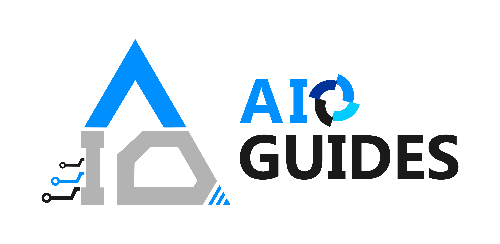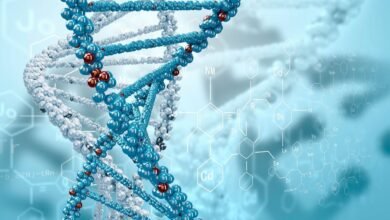IoT Applications: Future of Smart Technology

Introduction to IoT Applications
The Internet of IoT Applications represents a grid of connected machines capable of organizing and swapping data over the Internet. IoT spreads internet connectivity beyond standard instruments like computers and smartphones to a broad spectrum of familiar entities, infusing them with elegant functionality. This technology revolutionizes how we interact with the world, encouraging industrialization, improved efficiency, and real-time monitoring in different sectors like healthcare, manufacturing, and home mechanization.

What is IoT?
In the whirlwind of today is technology. The Internet of IoT Applications stands out as a rebellious concept. It’s a web where simple things are interconnected. And can communicate with each other through the Internet.
The Rise of IoT in Modern Technology
It’s amazing how IoT has seamlessly incorporated into our stamina, altering the way we interact with technology.
Understanding the Basics of IoT
Understanding the basics of IoT concerns understanding how various machines and detectors connect and transmit over the Internet, making a seamless web of data exchange. It’s about acknowledging the role of IoT in automating processes and making notified decisions based on real-time data analytics. Major to IoT is the integration of material and digital globes, where ordinary objects gain enhanced functionality through connectivity, data display, and thoughtful response.

Key Components of IoT
At its core, IoT consists of smart devices, a network for communication, and a system to collect and process data.
How IoT Works
These components work in unison, creating a smart, responsive environment around us.
IoT in Daily Life
IoT in daily life displays in smart home machines like thermostats and safety cameras, permitting slight control and monitoring for improved amenity and safety. Wearable technology like wellness trackers and smartwatches utilize IoT Applications to track soundness metrics and sync with other instruments for cohesive health leadership knowledge. Smart machines, like refrigerators and washing appliances, connect to the Internet, offering efficiency, remote process, and supervision alerts, seamlessly incorporating technology into daily tasks.

Smart Homes
Ever imagined your home managing itself? Well, IoT makes it possible with smart thermostats, lighting, and security systems.
Wearable Technology
Our fitness trackers and smartwatches? They’re classic examples of IoT at work, monitoring our health and keeping us connected.
IoT in Business and Industry
In business and industry, IoT Applications drive efficiency and creation by allowing real-time monitoring and mechanization of manufacturing operations and cache chains. IoT technologies enable predictive upkeep in machinery, decreasing rest and costs and enhancing overall productivity. Smart sensors and connected devices provide valuable data analytics, empowering businesses to optimize operations, improve customer incidents, and innovate in development and benefit offerings.

IoT in Manufacturing
In manufacturing, IoT enhances efficiency and safety, leading to smarter production processes.
IoT in Agriculture
Farmers use IoT for better crop management and to predict environmental changes.
IoT in Healthcare
IoT devices in healthcare enable remote monitoring and personalized patient care.
IoT and Smart Cities
IoT plays a pivotal role in the evolution of smart cities by improving urban infrastructure through connected detectors and machines, enhancing gridlock control, and lowering power consumption. It allows real-time monitoring of city benefits like public transportation, waste control, and water collection, coaching to more efficient and responsive urban management. Through IoT, smart municipalities evolve more bearable and comfortable, offering citizens improved security, connectivity, and an improved rate of life.

Traffic Management
IoT helps manage traffic flow and reduce congestion in cities.
Energy Management
IoT powers smart grids and energy systems in cities for efficient energy use.
Challenges and Concerns with IoT
The proliferation of IoT brings challenges such as providing rich security and solitude, as connected machines can be powerless against data infringements and cyberattacks. Controlling the giant book of data caused by IoT devices and ensuring its proper and moral use poses considerable technological and regulatory hindrances. Further, the integration of IoT across myriad venues raises worries about standardization, interoperability, and the digital divide, moving equitable access and use.

Security Issues
With more devices connected, the risk of cyber-attacks increases.
Privacy Concerns
IoT raises questions about data privacy and who has access to our information.
Data Management
Handling the vast amount of data generated by IoT devices is a challenge.
The Future of IoT Applications
The future of IoT Applications envisages a more corresponding world, with the growing integration of AI and apparatus learning improving the freedom and brightness of devices. Advances in IoT promise to revolutionize enterprises, healthcare, and urban expansion, bringing about more intelligent, more efficient methods and personalized experiences. As IoT technology matures, it will play a crucial role in driving tolerable practices, allowing smarter help management, and donating immensely to the promotion of smart municipalities and international scrimping.
Emerging Trends
We’re looking at more integrated and intelligent IoT systems in the future.
Predictions for IoT
The possibilities are endless, with predictions of further advancements in AI and machine learning.
Conclusion
In conclusion, IoT applications are altering our world, seamlessly blending the physical and digital domains to improve efficiency, amenity, and sustainability. From elegant homes and wearable technology to industrial mechanization and clever city infrastructure, IoT is revolutionizing how we live, operate, and interact with our circumstances. As these technologies resume development, they hold the commitment to further innovations, creating a more connected and intelligent future while also presenting challenges that must be addressed to realize their full possibility.
FAQs of IoT Applications: Future of Smart Technology
How do IoT Applications benefit households?
In homes, IoT applications include clever home machines like thermostats, safety procedures, and appliances, delivering comfort, energy efficiency, and improved security through small control and mechanization.
What role do IoT Applications play in businesses?
In business, IoT applications optimize processes through real-time monitoring, predictive upkeep, and enhanced data analytics, teaching enhanced productivity and decision-making.
Can IoT Applications improve healthcare?
Yes, IoT applications in healthcare contain slight monitoring instruments, wearable health trackers, and intelligent medical tools, improving patient care, diagnostics, and therapy products.
How do IoT Applications contribute to smart cities?
IoT applications in smart cities are interested in connected detectors and plans for traffic management, shared transportation, power use, environmental monitoring, and improving urban residence and sustainability.
IoT Applications: Future of Smart TechnologyHow Do You Like Our Post
0






